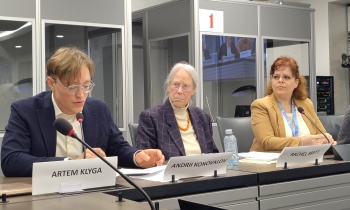Safeguarding Conscientious Objectors Amid Rising Militarization

In a world of accelerating militarization, the act of refusing to fight is bold and powerful. States justify mass conscription in the name of security and those who object are portrayed as traitors. Yet international law is clear: conscientious objection to military service is a protected human right.
It is inherent in freedom of thought, conscience, and religion, enshrined in Article 18 of both the Universal Declaration of Human Rights and the International Covenant on Civil and Political Rights. No limitation or exemption to this right is permitted; not in wartime, mobilization, or national emergency.
Despite this clarity, violations remain widespread. Conscientious objectors are imprisoned, denied education and employment, and cut off from basic civil and social rights. At a recent Human Rights Council side event, objectors shared testimonies exposing the personal cost of standing against militarization. Their stories are not isolated, but evidence of systemic disregard for binding obligations.
Rachel Brett on behalf of QUNO set out the relevant international law and stressed the importance of ensuring that this is respected in practice (full text below). She highlighted that access to recognition as conscientious objectors is especially critical during wartime, when normal provisions for release from military service are often suspended. Testimonies highlighted how refusal to serve leads to imprisonment, exclusion, and long-term violations of rights.
As the UN High Commissioner for Human Rights warned: “Pro-war propaganda is everywhere, from military parades to ramped up rhetoric. Sadly, there are no Peace parades, or Ministries of Peace.”
Conscientious objectors are, in effect, those peace parades. Their refusal to kill is a direct challenge to militarization, and their courage demonstrates another path. Protecting them is not optional: it is both a legal duty and a moral imperative.
Recent UN reports confirm this urgency. The Secretary-General’s report on combating intolerance documented discrimination where recognition is restricted or denied. The Special Rapporteur on Freedom of Religion or Belief further underscored that protection must extend to objectors on the move, including refugees and asylum seekers at risk of renewed persecution.
Through its submissions, QUNO continues to press for universal recognition of the right to conscientious objection to military service in law and practice. Safeguarding this right is essential; not only for those who claim it, but for the possibility of peace.


